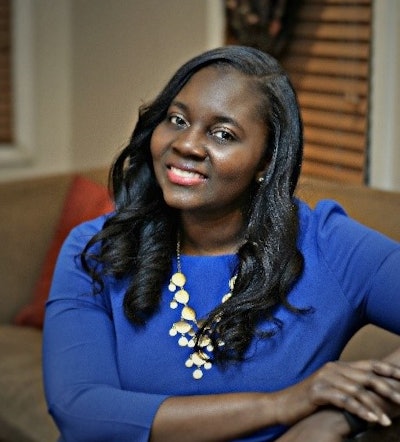 Tara Bellevue, vice president of inclusion, diversity, equity, and access at NAF, an education nonprofit supporting underserved high school students
Tara Bellevue, vice president of inclusion, diversity, equity, and access at NAF, an education nonprofit supporting underserved high school students
A September 2021 report on women in the workplace by both McKinsey & Company, a management consulting company, and LeanIn.Org, a nonprofit that supports women’s careers, finds that women are even more burned out this year than a year ago. And the gap in burnout between women and men has almost doubled this year compared to last.
The report additionally pointed out that women of color remain dramatically underrepresented in corporate leadership roles. Between the entry level and the C-suite, the representation of women of color drops off by more than 75%. Only 4% of C-suite leaders are women of color, a number that has not moved significantly in the last three years.
Pushing back against a persistent near-absence of women of color in the C-suite, nonprofits are preparing young women of color for career growth while they are still in high school. Advocates say this earlier approach helps build up a talent pipeline to shift who sits at the decision-making table years from today.
“We’re working with corporate partners like Johnson & Johnson and Verizon to give high school students chances to develop real-world, transferable skills to create meaningful college as well as post-college careers,” said Tara Bellevue, vice president of inclusion, diversity, equity, and access at NAF, an education nonprofit supporting underserved high school students.
NAF runs small learning communities within high schools while providing internship, mentoring, and/or networking opportunities to students. The organization currently works with 117,000 high school students across the country. About 70,000 of those students are pursuing STEM learning pathways, and of that number, roughly 89% identify as women and/or Black, Hispanic, or Latinx.
Part of the goal is helping high schoolers of underrepresented backgrounds, including young women of color, see themselves in leadership roles in fields like STEM. Regarding the report on women and women of color in the workplace, Bellevue said that the importance of career and college readiness programs for underserved high schoolers cannot be overstated.
“The biggest advantage of NAF that young people have shared with us is the early exposure to careers they may not have otherwise pursued,” said Bellevue. “The chance to talk to a patent attorney or an engineer—and to possibly intern at companies—can let students think about colleges and careers that they may have never considered before. That’s a game changer.”
Rebecca Kelliher can be reached at [email protected]



















